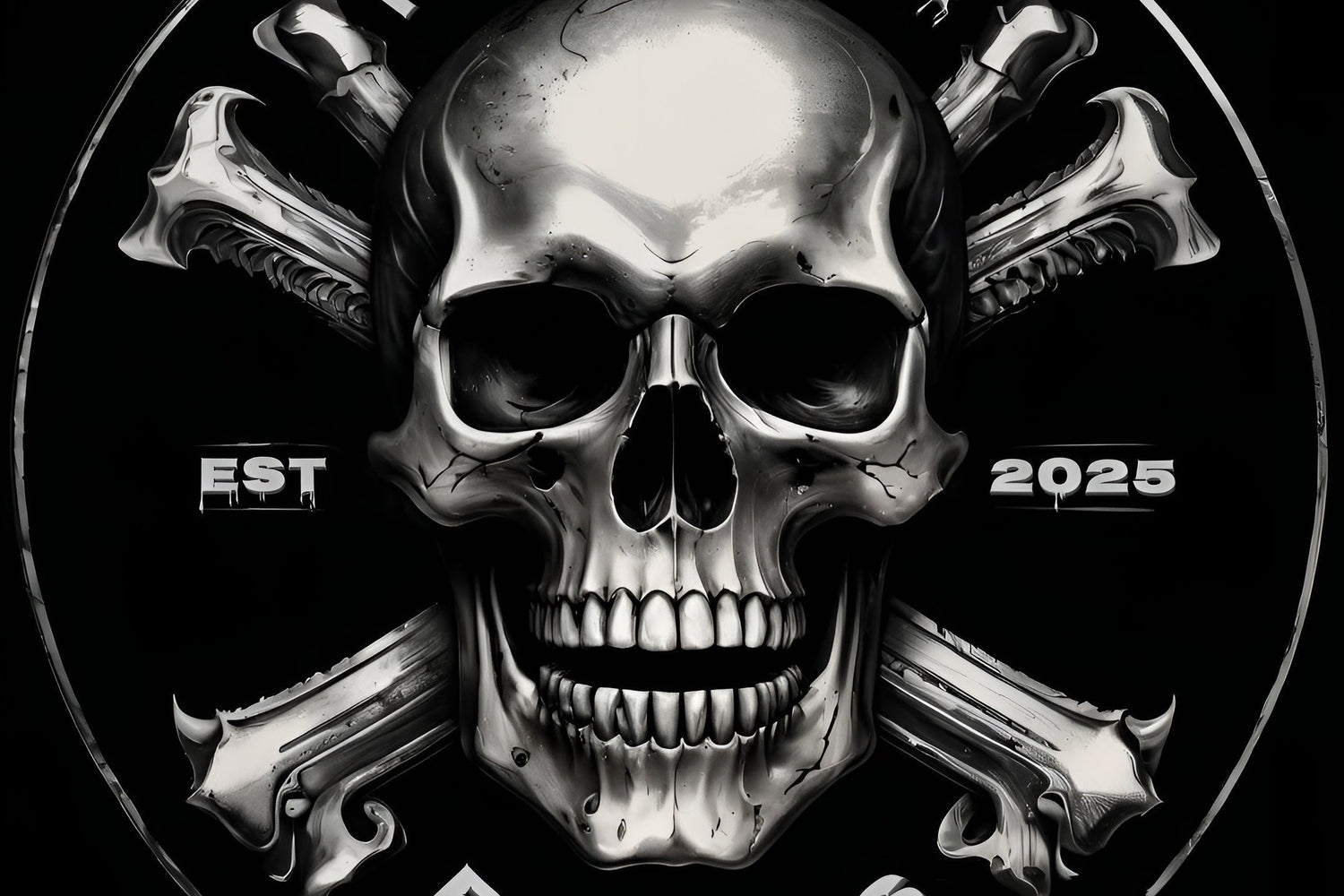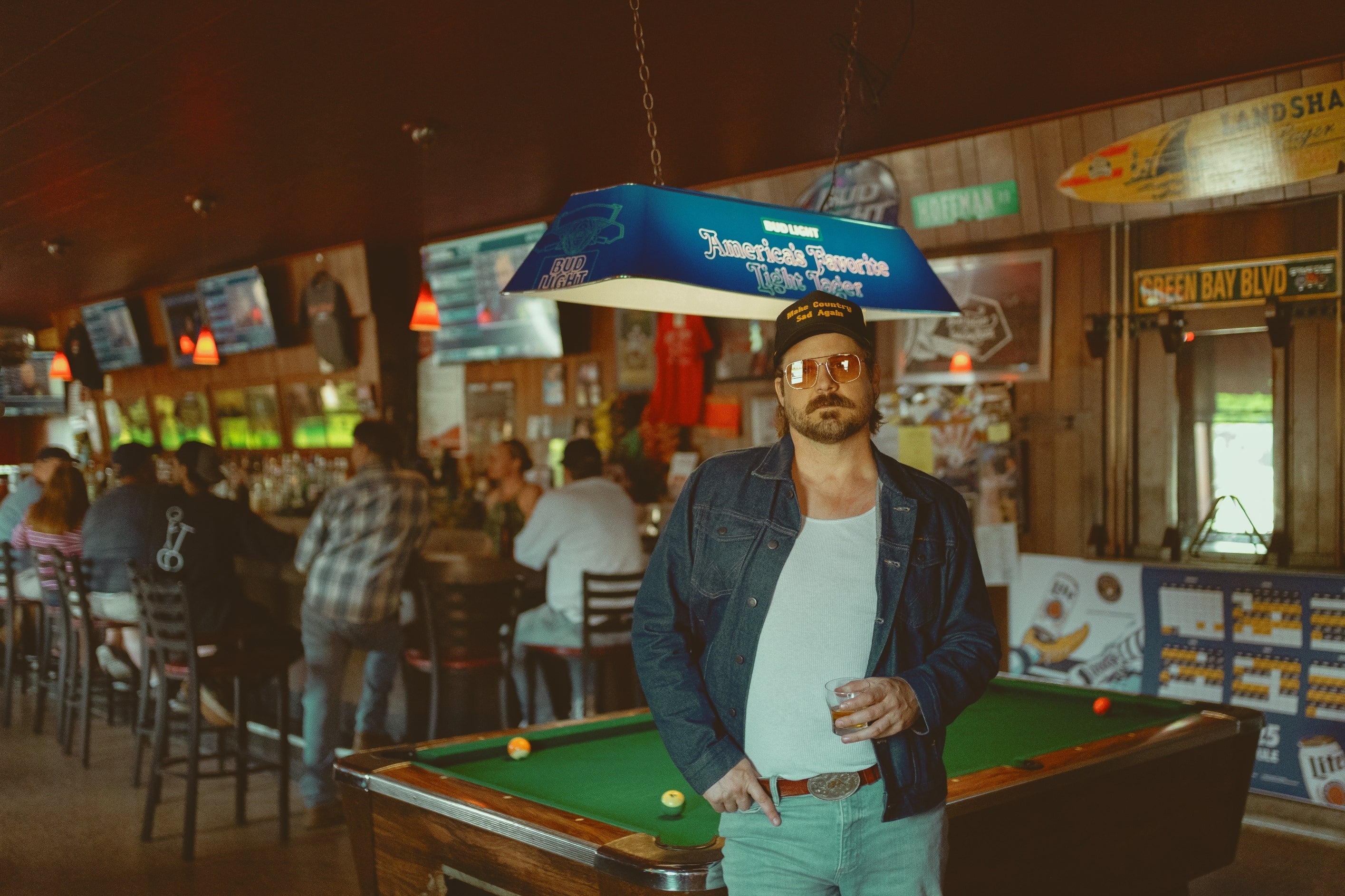In an industry often dominated by major players and cutthroat business practices, a new kind of record label is emerging from the vibrant New York music scene. knifetwister records isn't your typical startup; it's an ambitious venture with a dual identity as both a record label and a digital magazine. Driven by a deep-seated passion for the city's metal, punk, and ska communities, it’s forging a new path built on principles of mutual support and artistic freedom. Their ethos is simple: create a platform that prioritises the artists and the scene itself, not the bottom line.
We recently sat down with the founder of knifetwister records to discuss the challenges of starting a new venture, their unique approach to business, and what it truly means to be a part of the local scene.
It’s great to have the chance to chat with today. knifetwister records is a unique and brilliant venture, and it’s built around the dual identity as both a record label and a digital interview/profile magazine. How do you see these two aspects working together to support the NYC punk, ska, and metal scene?
“There are a few answers to that. We are in talks with one band, but we are a way away from actually launching as a label that is out there actively scouting bands. So – I hate to use the word “brand”, it sounds like awful marketing jingo – we are trying to establish ourselves as an entity. Second, this is all about supporting the scene here, one that is overlooked and should get the respect it deserves.”
“We’re already paying for the hosting on the website, so what does it cost to do an interview or profile with a small band that is trying to make it? Just time and effort, and that’s fine. We welcome it really, it’s enjoyable, and if it wasn’t, we’d be doing something else with our time. And in a world that has kind of lost much of its sense of civility and mutual aid, there’s something gratifying about simply hearing ‘thanks man, we appreciate it’.”
Operating as a startup, what have been some of the most significant challenges you've encountered since launching the digital magazine last month, and how are you addressing them?
“No tremendous challenge really, other than trying to get enough sleep. We’ve done similar things before; managed several bands, filmed interviews, designed band websites, directed a music video, worked with streaming service distribution and getting lyrics online and shows onto local news websites and creating Spotify canvases and things like that. Having been immersed in loud, fast, aggressive music since the early 80’s, love and passion is really what propels the boat forward.”
Your artist-friendly ethos, including artists retaining rights and the ability to walk away, can be seen as unconventional in today’s music industry. What led you to structure your deals this way, and what do you see as the primary benefits and potential challenges of this approach?
“To put it quite simply, we’re nice people. The music industry is full of people who aren’t - it’s always been that way, going all the way back to the treatment of blues singers in the 30’s and girl groups in the 50’s and all the way up to exploitative paid streaming services today. We want no part of that. So yeah – we intend to essentially start off with handshake contracts, or paper napkin ones if you prefer.”
“Record labels don’t handle music distribution anymore, everything is DIY, from Bandcamp to Spotify to printing CD’s and merch. Labels don’t book shows – if you’re talking about a huge band doing stadium tours, then yes, there’s a management team coordinating that. Those are not the artists we’re interested in. So yeah – down the road, if we connect with a band that has potential, we don’t need to jump into a marriage; let’s take each other for a test drive. We’ll promo you, you promo us, we’ll provide artistic guidance, you can say ‘knifetwister records recording artists’ or whatever on your flyers if you want, we’ll exchange some t-shirts, et cetera, and we’ll all reassess in six months.”
“If it’s not working for either party, we’ll part as friends. If it is, we’ll structure something that everyone is 100% comfortable with. If we’re under contract and you get a better offer from another label, take it with our blessing. We want to do things a little differently. “
You've stated that knifetwister records is not a money-making venture and will initially operate at a loss, driven by a passion for the NYC music scene. How do you plan to sustain the label and magazine long-term, given this financial outlook?
“Well, it’s not a tremendous outlay of money at the moment. We’re not signing a band and saying, ‘here’s a $50,000 advance, pay it back when you make it big’. The industry has changed quite a bit. So, counting major labels, their imprints, mid-sized labels, independent labels, and small/DIY labels, we’re talking upwards of 100,000 labels worldwide. Universal, Sony and Warner combined have 85% of the market. So that’s a lot of very small labels operating on a shoestring budget and making it work. We aren’t paying rent on corporate offices in New York, Los Angeles and London. But we’ve got passion, dedication, and know-how.”
As a startup and new label, what specific strategies are you employing to identify and connect with the "small to medium-sized artists" you aim to feature and potentially sign within the vibrant NYC punk, ska, and metal communities?
“That may be the easiest part of this. The New York scene, probably like most cities, has a fairly well-defined circuit. You’ve got places like The Bowery Electric on the Lower East Side, Bridge and Tunnel Brewery in Queens, The Main Drag and Wood Shop in Brooklyn, various bars in the city and suburbs, and NYHC Comics puts on events like Hardcore in the 914 up in Westchester, just as examples. These are great outlets for small bands to get out there, get experience, get noticed, and do what they love. And the bands all know each other; everything is pretty tight knit.”
“You can go down to any one of a dozen venues on a given Saturday night and catch six different bands. And these aren’t global superstars who head back to a green room or their trailers after the show – they hang out outside, chatting with people. They’re real people, people with day jobs, which is what makes the scene so great – they’re doing this for the love of it, same as us.”
With a website and an Instagram page already established, what are your immediate and long-term strategies to grow your audience and amplify the voices of the artists you support?
“I’ve been in tech for over 30 years and have seen the trends in technology as regards social media and just the internet in general. As for a website – people honestly rarely look at them anymore, and if they do, there’s a very high bounce rate. It’s a little more about establishing a web presence and looking like you have your act together, which we believe we do. Social media – well, it matters, but it can a bit of an echo chamber. Someone leaves a fire emoji or two, who knows if they actually look at anything, much less read it. This is not a criticism of anyone, that’s just the way it is now. The only way to do this is to get out there and make personal connections and build relationships.”
You've mentioned discussions with one band for a potential signing. Can you give us a bit of a glimpse into what we might expect?
“Can’t name names at the moment unfortunately, but this is a well-established band with an extensive back catalogue of material that is looking to release some of it. We like what we’ve heard so far, needs a little polish from an audio engineer – we do some mixing and mastering engineering as well – but looks like a done deal, it’s a good symbiosis, and we’re looking forward to working with them. Doesn’t hurt that they’re good friends, I guess. It’s really a win-win.”
What qualities or characteristics do you look for in artists that align with the knifetwister records ethos, beyond just their musical genre?
“Well, of course they need to pass the ear test, if the music is hard to listen to, it will be hard to promote. But more specifically, we’re looking at energy, dedication and fan response. This is not the kind of music you can stand up there and play while you’re half asleep, these are high-energy genres, and you have to put your all into it. There needs to be some dedication to the band itself, which is not saying you need to have the band name tattooed on your arm, but you need to be in this for the long haul. If we were a band (and we’re not, zero musical talent here), we’d eat, sleep and breathe our band, and that’s what we’d like to see. And a dedicated fan base is always a good sign.”
“Our label is generally based upon anarchist/humanist principles – we’d love to see a band that is willing to speak their mind about important issues and stand up for what they believe in. Yeah, a lot of punk and metal is about sex, drugs, and punching people in the face. That’s great, we love that too, and there’s certainly room for it. It’s a big tent, But you don’t want to be a one trick pony. Hardcore, metal, ska – they’re historically been built on a foundation of non-conformity. Is genuine non-conformity going to sell a million albums and have you playing the Super Bowl Halftime Show? It isn’t. But if music (or really any art) makes you think, it’s worthwhile; otherwise, it’s not.”
The NYC punk, ska, and metal scenes are rich with history and talent. In what specific ways do you hope knifetwister records will contribute to the evolution and continued vitality of these genres in the city?
“Good question. Four of our favourite bands came right out of Queens, New York – White Trash, CHAKA, Murphy’s Law and Butterbrain, and that’s just one of the five boroughs in New York City. There are a million bands coming out of New York, and not just the city – Long Island, Jersey, Westchester, up in the Hudson Valley, Connecticut. The New York metro area is the epicentre for underground music – you could probably catch 15 bands on a Saturday night with some ambition and maybe a few stimulants.”
“Evolution and continued vitality is going to happen with or without us. But that’s about the scene in general. On a more micro level, having a small roster of bands down the road is more about making a difference for those bands than it is for the scene as a whole, although the two do dovetail. The scene flourishes when everyone contributes a little, that’s what builds community. And this really should be, and is, a community.”
If you could put the the core philosophy of knifetwister records into one sentence, what would it be?
“Well, this relates to us as well as to any artists out there: either love what you do, or don’t do it.”
Championing artist-friendly deals that allow musicians to retain the rights to their work and walk away at any time, knifetwister records are looking to do things different. With an approach rooted in the belief that passion should be the driving force behind any creative pursuit, they’re aiming to build a community, nurture talent, and redefine what a record label can be.
From our time with the label, it's clear that foo knifetwister records, success isn't measured in album sales or financial returns, but in the lasting connections they forge and the lasting support they provide to the music that they so clearly love.
For more from the label, be sure to check out their website, find the label on Instagram, or get in touch via email today.




